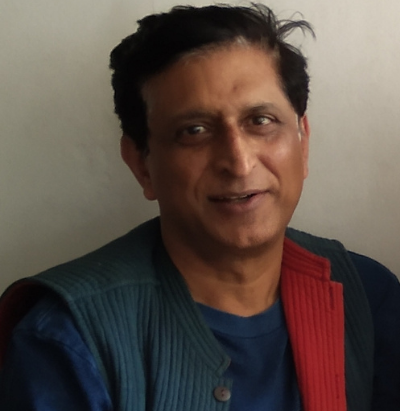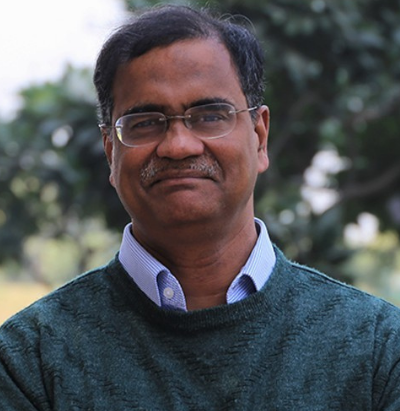That every student must take some course in Environmental Studies is mandated by the UGC and, we think, for good reasons. At Ashoka, we are convinced that being exposed to and engaging with issues having to do with the role human beings play in our shared environment is an important part of every student’s education. This course will look at a variety of issues from climate change and species extinction, to socio-economic responsibilities and environmental justice, to address the fundamental question of how do we live at peace with nature.
Semester : Monsoon 2023
This course is meant to introduce students to nature-society dialectics. We will examine the historical, social, and political processes that shape societal relations with the natural environment. The course has three overarching goals. First, it will help students gain an in-depth understanding of some of the pressing environmental issues of our times, such as the agrarian crisis, climate change, disaster and vulnerability, waste, the industrial food system, struggles over water, and neoliberalization of nature, among others. Second, drawing on a variety of theoretical frameworks, including Marxist, feminist, and post-structuralist perspectives, the course will expose students to a breadth of approaches to environmental questions. Finally, through this course, I hope to be able to cultivate a sense of environmental citizenship in students. The course will be taught using a combination of lectures, discussions, films, and group projects.
Semester : Monsoon 2023
Human involvement in environmental changes is currently an important topic of concern, but it is clear that we need to improve our understanding of how ecological and environmental systems work to participate in shifting the framework from discourse to action. This course provides an overview of global ecological systems, environmental change and natural patterns, to set the stage for more informed discussion and debate. Based on this fundamental ecological understanding, this course examines how environmental crises are framed, as against the science, and what solutions are currently on offer. Finally, students will examine these solutions in light of the big philosophical debates underpinning them with a view to promote critical analyses.
Watch Video
Semester : Monsoon 2023
This course is an FC that introduces you to Environmental Studies. The course structure is as follows:
Week 1: Environmental Conservation and Sustainable Development: Origins and interactions
Week 2: Political Ecology intro
Week 3: Earth and Atmospheric systems
Week 4: Climate change
Week 5: Hydrological systems
Week 6: Biodiversity
Week 7-13: Strategies for conservation
We will have readings from multiple disciplines. At the end of the course, you should be able to understand, query and problematize any environment related issue; a skill you will hopefully continue to use in your future careers.
Semester : Monsoon 2023 and Spring 2024
This course offers an overview of the interrelationship between environment, development and climate change. It examines various concepts and components of ecosystem and biosphere, and diverse ways in which human-non human lives exist, cooperate and compete with each other. It traces the history of development through different phases of human-nature correlation and explains how theories, practices and questions of globalisation, sustainability, transition, inter-generational equity, gender, health, disasters and green growth have important bearings on our understanding of ecology in present times. In this course, environment and development are also inferred in the context of climate change. It analyses not only how development has led to climate change, but also how climate change is defining our development, which incorporates socio-economic distribution of impacts and burden, energy and carbon emissions, politics of climate change and justice, and alternatives of renewable energy and sustainable transition.
Semester : Spring 2024
Biodiversity Conservation
Biodiversity Conservation
The writings of Henry David Thoreau symbolise the transcendental character of nature and celebrate the sublime and untamed wilderness. The idea of conserving nature has undergone a shift from “wilderness preservation” to a more formal discipline concerned with “biodiversity conservation”. This transition was not sudden and many steps in this transition had underpinnings of theoretical and empirical findings. In this course, we will discuss how we know what biological diversity is and how can we measure it. Where is biodiversity located and how do we prioritise areas for conservation? Along the course, the students will be introduced to the tools for measuring and monitoring biodiversity. We will discuss how biodiversity monitoring is playing a major part in providing a nuanced understanding of human impacts on biodiversity at multiple levels – diversity of species, genetic diversity, and diversity of ecosystems.
Throughout the course, we will underscore that conservation problems are multi-faceted. George Schaller describes the social and political nature of conservation – “Instead of being just a biologist, something for which I was trained, I must also be an educator, diplomat, fundraiser, politician, anthropologist…”
Key Readings:
- Anne E. Magurran, Brian J. McGill. Biological Diversity: Frontiers in Measurement and Assessment. Oxford University Press, 2011
- Fred Van Dyke. Conservation Biology. Second Edition. Springer. 2020
- Leopold, Aldo. A Sand County Almanac: And Sketches Here and There. New York: Oxford University Press, (first edition 1949), s/d.
- Nekola, Jeffrey C.; Brown, James H. The wealth of species: ecological communities, complex systems and the legacy of Frank Preston. Ecology Letters, vol. 10, 2007, p. 188–196
- Schaller, George B. A Naturalist and Other Beasts. Tales from a life in the field. San Francisco: Sierra Club Books, 2007
- Soulé, Michael E. What is Conservation Biology: A new synthetic discipline addresses the dynamics and problems of perturbed species, communities and ecosystems. BioScience, v. 35, n.11, 1985, p. 727-734.
Semester : Spring 2024
Environmental issues are topical not only in India but the world at large today. They are also of epocal significance given we are living in an era when human demographic growth and technological and economic changes are altering and have altered in a short pan of time the biophysical surrouendings in which we live and are dependent. Yet the drivers of the changes as well as their consequences for different peoples and ecosystems are far from uniform. This course aims to help thinking through how understanding science and society are vital to know better how to think about environmental issues.
To know where we are it will help to ask how we got here in the first place. Drawing on recent works on the Great Acceleration in economic and demographic expansion after the Second World war, we hope to identify factors that cut across different countries, while drawing distinctions between ecological issues that may differentiate rich from poor both within and across nation states.
The great debates on the environment: how far it arises from unchecked population growth, the role and place of modern technology and the biodiversity and agrarian challenge are explored by taking up key thinkers such as Paul Ehrlich and Rachel Carson, Schumacher and EO Wilson. The idea is to learn where these ideas and notions are coming from and to critically engage with them. Ecology, the study of the structure and functions of nature helps reassess technological changes in terms of implications for other species as well as future human generations. But when it comes to how to respond and where and who pays costs, the issues need engagement with society, culture and economics.
The latter part of the course unpacks key debates and issues in India and other developing countries such as big dams and the Green Revolution. Drawing on the conceptual categories already discussed, these are set in the specific context especially vis a vis disparities not only of the worse and better off but also in terms of gender. The issue of global climate change is especially evocative as it brings both the specific and particular into focus.
The objective of the course is to enable critical and informed thinking on the environment in a manner that is foundational to each of us as both student and citizen. By drawing on key thinkers and practitioners but in a critical way it will enable further critical thought. Discussions of current issues and short documentaries watched together will enrich the learning from readings.
Reading list:
- Carson, Rachel, Silent Spring, Boston: Houghton Mifflin, 1962.
- Commoner, Barry, The Closing Circle, Alfred Knopff, 1971.
- Guha, Ramachandra, Environmentalism , A Global History, New York, Longman, 2001.
- McNeill, John and Peter Engkele, The Great Acceleration, An environmental history of the Anthropocene since 1945, Mass: Belknap Press, 2014.
- Rangarajan, Mahesh ed, Environmental Issues in India: A Reader, Perason, 2007.
- Wilson EO, Biodiversity, Washington: National Academy Press, 1986










